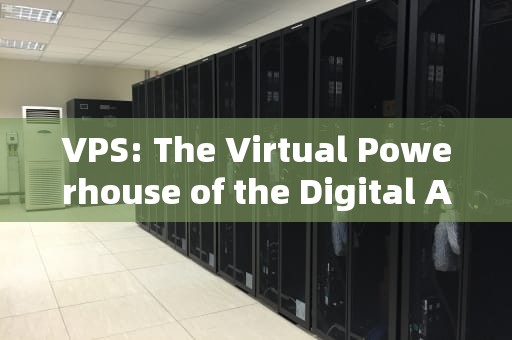In the vast and intricate landscape of modern computing, understanding the nuances between different types of server environments is crucial for both businesses and individual users. One such term that often generates curiosity and sometimes confusion is VPS – Virtual Private Server. The question "Is a VPS just another name for a server?" might seem straightforward, but the answer reveals a more complex and fascinating world beneath the surface.

Unveiling the Concept: What is a VPS?
A VPS, or Virtual Private Server, represents a hybrid solution that bridges the gap between shared hosting and dedicated servers. Picture a traditional physical server, a robust machine designed to handle multiple tasks and support various applications. Now, imagine partitioning this powerful machine into several isolated sections, each functioning independently as its own server. This is essentially what a VPS achieves—it carves out a dedicated slice of the physical server's resources, such as CPU, RAM, and disk space, for exclusive use by a single user or organization.
The Distinction: VPS vs. Dedicated Servers
To directly address the question, a VPS is indeed a type of server, but it's not synonymous with all servers. While both VPS and dedicated servers provide users with their own operating system environment, the underlying technology and resource allocation differ significantly. A dedicated server is a physical machine entirely devoted to one user, offering maximum performance and control at a higher cost. In contrast, a VPS leverages virtualization technology to simulate a dedicated server experience within a shared physical server environment, striking a balance between cost-effectiveness and performance.
Why Choose a VPS?
Cost Efficiency
For startups and small to medium-sized enterprises, the cost advantage of a VPS over a dedicated server cannot be overstated. It provides a similar level of control and customization without the hefty price tag attached to renting or purchasing an entire physical server.
Scalability
Businesses experiencing rapid growth appreciate the scalability of VPS solutions. Unlike shared hosting, where resources are limited and unpredictable, a VPS allows for easy upgrades in CPU, memory, and storage without the need to transfer data or deal with downtime. This flexibility ensures that your website or application can grow seamlessly alongside your business needs.
Control & Isolation
One of the key benefits of a VPS is the level of control it offers users. Each VPS operates independently, meaning your activities won't be affected by other users sharing the same physical server. This isolation also enhances security, as vulnerabilities in one VPS are less likely to impact others on the same machine.
When to Consider Alternatives
While VPS is a popular choice for many, it's not a one-size-fits-all solution. For extremely resource-intensive applications or large-scale enterprises requiring maximum uptime and performance, a dedicated server may still be the preferred option. On the other hand, for personal projects or websites with minimal traffic, shared hosting could suffice, offering a more economical choice albeit with some trade-offs in terms of control and reliability.
Embracing Innovation: Cloud VPS
The advent of cloud computing has further revolutionized the concept of VPS, leading to what's known as Cloud VPS. Unlike traditional VPS that are hosted on a single physical server, Cloud VPS spreads data across multiple servers in a cluster, providing enhanced redundancy, flexibility, and nearly limitless scalability. This innovation ensures higher availability and resilience against hardware failures, making it an attractive option for businesses aiming for uninterrupted online presence.
Conclusion
In conclusion, while a VPS is fundamentally a form of server, its unique attributes set it apart from other types like dedicated and shared servers. It embodies a blend of cost-efficiency, scalability, control, and technological advancement that make it particularly appealing in today's dynamic digital landscape. So, when asking whether a VPS is 'just a server,' remember that it's much more than that—it's a testament to the power of virtualization, enabling businesses of all sizes to harness the capabilities of sophisticated IT infrastructure without breaking the bank. As technology continues to evolve, understanding these distinctions becomes ever more critical in making informed decisions that drive success in the digital age.
随着互联网的普及和信息技术的飞速发展台湾vps云服务器邮件,电子邮件已经成为企业和个人日常沟通的重要工具。然而,传统的邮件服务在安全性、稳定性和可扩展性方面存在一定的局限性。为台湾vps云服务器邮件了满足用户对高效、安全、稳定的邮件服务的需求,台湾VPS云服务器邮件服务应运而生。本文将对台湾VPS云服务器邮件服务进行详细介绍,分析其优势和应用案例,并为用户提供如何选择合适的台湾VPS云服务器邮件服务的参考建议。

工作时间:8:00-18:00
电子邮件
1968656499@qq.com
扫码二维码
获取最新动态
